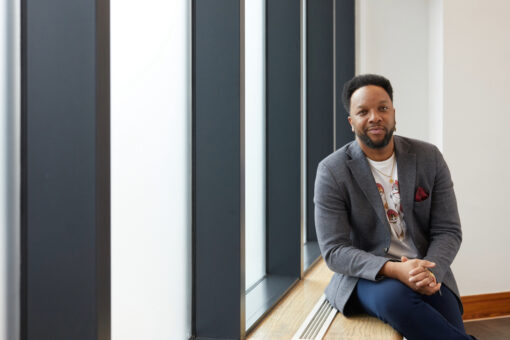Why does inclusive leadership matter in social work?

When I was in primary school, my family was visited by social workers because my behaviour was seen as “difficult” and deemed “beyond parental control.” My behaviour in fact reflected the core pain I was experiencing due to my mother’s addiction, which severely impacted her ability to parent. I sat alone on my bed, listening to the social workers speak to my parents about my “difficult” behaviour. Their disapproval was clear and I felt sad, confused and invisible. I remember thinking “why aren’t they asking me how I feel?”. In that moment, the seeds were planted for my journey into social work, fuelling my determination to ensure that children are seen and heard.
Throughout my career, I’ve seen the difference it makes when social workers take the time to build trust and truly connect with young people and their families. My personal experiences both influenced my decision to become a social worker and made me fearful of becoming one too! As a teenage mother who had recently come out as a lesbian, I had heard the myths that social workers were only there to “take children” from parents like me. I was determined to become the supportive social worker I wish I’d had. I also feared facing those same judgments.
In 2022 I attended one of Frontline’s leadership programmes, and it was in this reflective and safe space that I was finally able to take off my professional mask. For years, I kept my lived experience hidden at work, creating almost two Laura’s – the professional Laura and the survivor Laura – out of shame and fear of judgment. At the first residential, we were encouraged to think about who we are and what we bring to leadership. This was a fundamental shift for me and I felt able to share my story. Now, I’m open about my experiences and proud to model post-traumatic growth for colleagues, because we all need hope, for ourselves and for our families.
As a social worker and leader, I believe in the power of inclusive leadership to create safe spaces where all social workers feel valued and supported. It took me time to learn how to care for my own emotional well–being and to recognise the effects of vicarious trauma, especially since my personal trauma had become so normalised for me that I didn’t always notice when I wasn’t okay.
Inclusive leadership means making sure everyone feels safe and comfortable to share their thoughts and feelings about personal biases and prejudices, while actively advocating anti-oppressive practice. For those of us from minoritised backgrounds, discrimination adds further challenges, so as leaders we need to be intentional and compassionate about the support we provide.
It also means noticing and supporting social workers when they are struggling and understanding that some of us carry our own trauma into work. As leaders, it’s important to explore this balance and offer support for those who may be struggling. By encouraging conversations and where possible sharing vulnerabilities as a leader we can create an environment where colleagues feel more empowered to do the same.
When social workers and leaders are emotionally nourished, feel safe and supported, we are better placed to support children and families. For example, my own lived experience of domestic abuse helps me understand what it is to live in a dangerous and frightening relationship. When my team are supporting children and families affected by domestic abuse, I share some of my experiences to help them better understand what families are going through and how best to support them. But I can only do this because of the support I have had to feel comfortable talking about my trauma with colleagues.
Frontline helped me to understand my shame and become fully myself, whole, integrated and proud as a social worker and a survivor, who shares a multiplicity of experiences with children and families. If you want to be inclusive in your leadership you must be able to be your authentic self, by embracing your own journey and encouraging others to do the same. By doing so, we can build deeper, more meaningful conversations with children.
Like Laura, we believe inclusive leadership is essential. If you want to develop your own leadership skills, explore our leadership programmes.